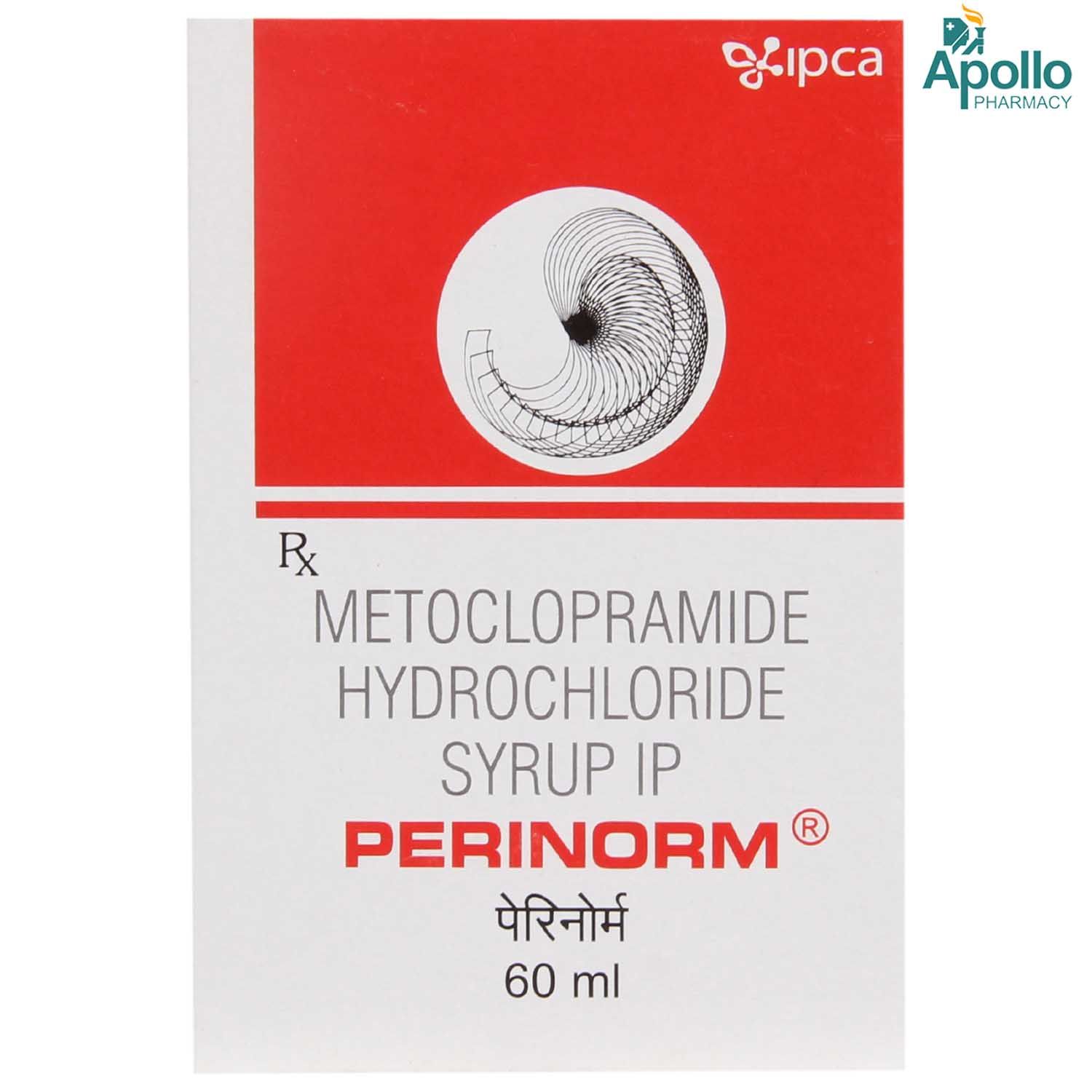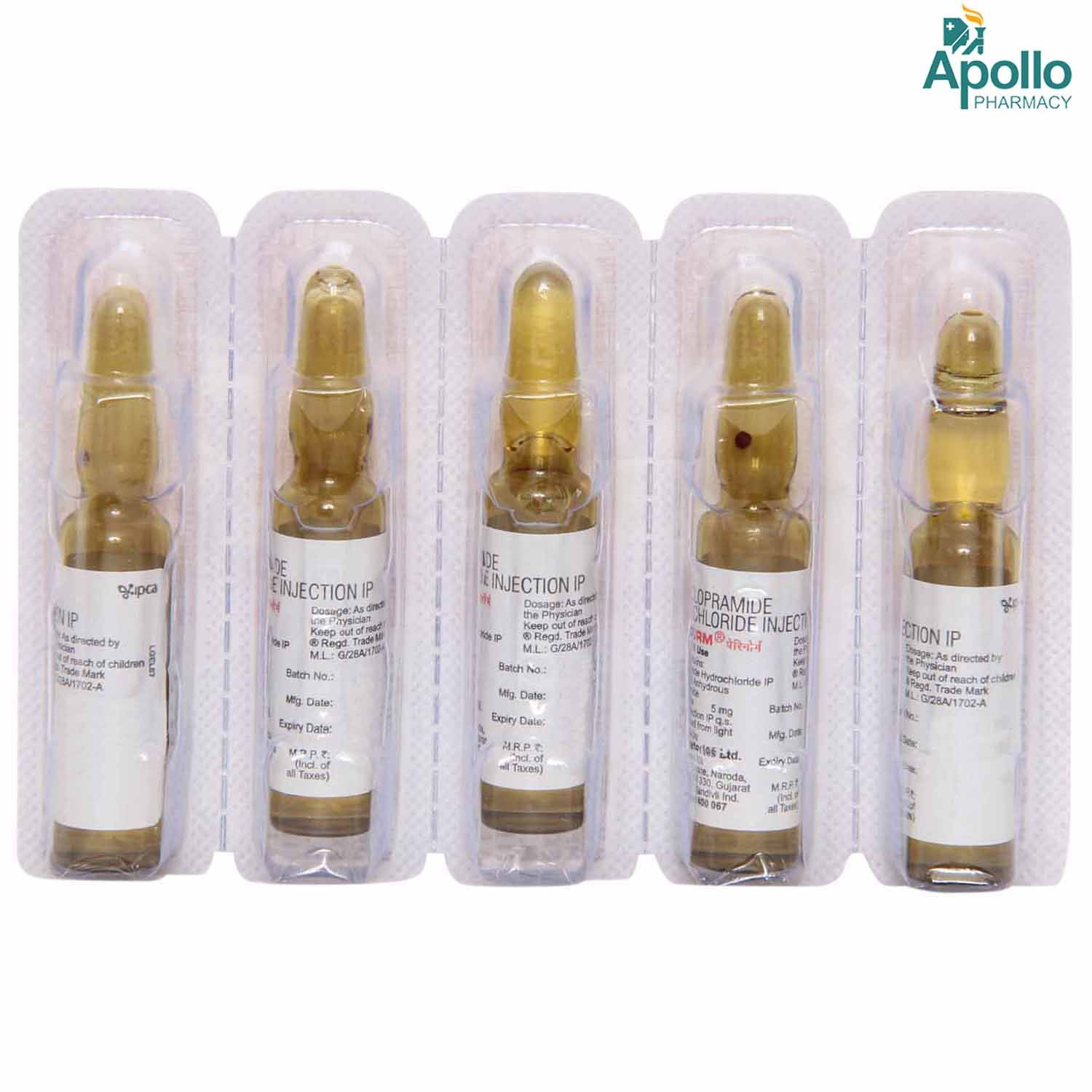EMENORM INJECTION
₹4.95*
MRP ₹5.5
10% off
₹4.67*
MRP ₹5.5
15% CB
₹0.83 cashback(15%)
Free Delivery
With Circle membership
(Inclusive of all Taxes)
This offer price is valid on orders above ₹800. Apply coupon PHARMA10/PHARMA18 (excluding restricted items)
Know Your Delivery Time
Provide Delivery Location

Whats That

Secure Payment

India's Most Trusted Pharmacy

Genuine Products
Composition :
Manufacturer/Marketer :
Consume Type :
Return Policy :
Expires on or after :
About EMENORM INJECTION
EMENORM INJECTION belongs to a group of medicines called anti-emetics and prokinetic agents used to prevent nausea and vomiting caused by chemotherapy, radiotherapy, migraine, and in post-operative conditions. Additionally, EMENORM INJECTION is also used to treat delayed gastric emptying. EMENORM INJECTION may be used to facilitate small bowel intubation and to stimulate gastric emptying and intestinal transit of barium.
EMENORM INJECTION contains ‘metoclopramide’ that works by increasing the motility of the upper gastrointestinal tract; this allows faster transit of food and treats gastric emptying. It also works on the part of the brain that controls vomiting, thereby helps in preventing nausea and vomiting.
In some cases, EMENORM INJECTION may cause common side-effects such as drowsiness, fatigue, dizziness, headache, and bowel disturbances. Most of these side effects do not require medical attention and will resolve gradually over time. However, you are advised to talk to your doctor if the side effects persist or worsen.
Consult your doctor if you are pregnant or breastfeeding. EMENORM INJECTION may cause drowsiness and dizziness affecting your ability to drive and operate machinery. EMENORM INJECTION is not recommended for children below one year. Avoid consuming alcohol while on treatment with EMENORM INJECTION as it could lead to increased drowsiness. Treatment with EMENORM INJECTION is not recommended for longer than 12 weeks, except in rare cases.
Uses of EMENORM INJECTION
Medicinal Benefits
EMENORM INJECTION belongs to a group of medicines called anti-emetics and prokinetic agents used to prevent nausea and vomiting caused by chemotherapy, radiotherapy, migraine, and in post-operative conditions. Additionally, EMENORM INJECTION is also used to treat delayed gastric emptying. EMENORM INJECTION may be used to facilitate small bowel intubation and to facilitate gastric emptying and intestinal transit of barium in patients where delayed emptying interrupts radiological examination of the stomach and/or small intestine. EMENORM INJECTION contains ‘metoclopramide’ that works by increasing the motility of the upper gastrointestinal tract; this allows faster transit of food and treats gastric emptying. It also works on the part of the brain that controls vomiting, thereby helps in preventing nausea and vomiting.
Side Effects of EMENORM INJECTION
- Drowsiness
- Fatigue
- Dizziness
- Headache
- Bowel disturbances
Directions for Use
Storage
Drug Warnings
Do not take EMENORM INJECTION if you are allergic to any of its components; if you have gastrointestinal bleeding, mechanical obstruction/perforation, pheochromocytoma (tumour in the adrenal glands), or epilepsy. EMENORM INJECTION may cause neuroleptic malignant syndrome (a nervous disorder with high fever and muscle stiffness), extrapyramidal symptoms (shaking, tremor, stiffness and involuntary movement), Tardive dyskinesia (movement disorder), Parkinson-like symptoms (bradykinesia, tremor, cogwheel rigidity, or mask-like facies), and depression. Inform your doctor if you have heart problems, diabetes, depression, high blood pressure, breast cancer, seizures, Parkinson’s disease, methaemoglobinaemia, or liver or kidney problems. Consult your doctor immediately if you cannot stop or control movements like shaking your arms and legs, blinking and moving your eyes, sticking out the tongue, frowning, lip-smacking, chewing, or puckering up the mouth.
Therapeutic Class
Drug-Drug Interactions
Drug-Food Interactions
Diet & Lifestyle Advise
- Eat smaller meals more often.
- Drink fluids to stay hydrated.
- Avoid solid foods until vomiting stops.
- Avoid foods that might cause stomach upset.
- Take ample rest. Avoid any activity immediately after eating.
- Consume plain, light foods such as bread and biscuits.
- Avoid food with strong flavours and fried food.
- Ginger tea might help in proper digestion.
Habit Forming
How EMENORM INJECTION Works
What if I have taken an overdose of EMENORM INJECTION
Alcohol
Unsafe
Avoid consumption of alcohol while on treatment with EMENORM INJECTION as it may cause increased sleepiness and drowsiness.
Pregnancy
Caution
Consult your doctor if you are pregnant; your doctor will prescribe only if the benefits outweigh the risks.
Breast Feeding
Caution
EMENORM INJECTION may be excreted in human milk. Consult your doctor if you are breastfeeding.
Driving
Caution
EMENORM INJECTION may cause dizziness and drowsiness. Do not drive or operate machinery until you know how EMENORM INJECTION affects you.
Liver
Caution
Dose adjustment may be needed. Consult your doctor if you have a liver impairment or any concerns regarding this.
Kidney
Caution
Dose adjustment may be needed. Consult your doctor if you have kidney impairment or any concerns regarding this.
Children
Caution
EMENORM INJECTION is not recommended for children below one year.
Country of origin
Manufacturer/Marketer address
Author Details
We provide you with authentic, trustworthy and relevant information
EMENORM INJECTION Substitute

Perinorm Syrup 60 ml
by AYUR
₹0.50per tabletPerinorm Injection 2 ml
₹2.50per tabletPerinorm Injection 10ml
₹3.29per tabletPerinorm Injection 20 ml
by AYUR
₹1.62per tabletReglan Injection 5 x 2 ml
by AYUR
₹5.32per tablet
FAQs
Disclaimer
Product Substitutes















